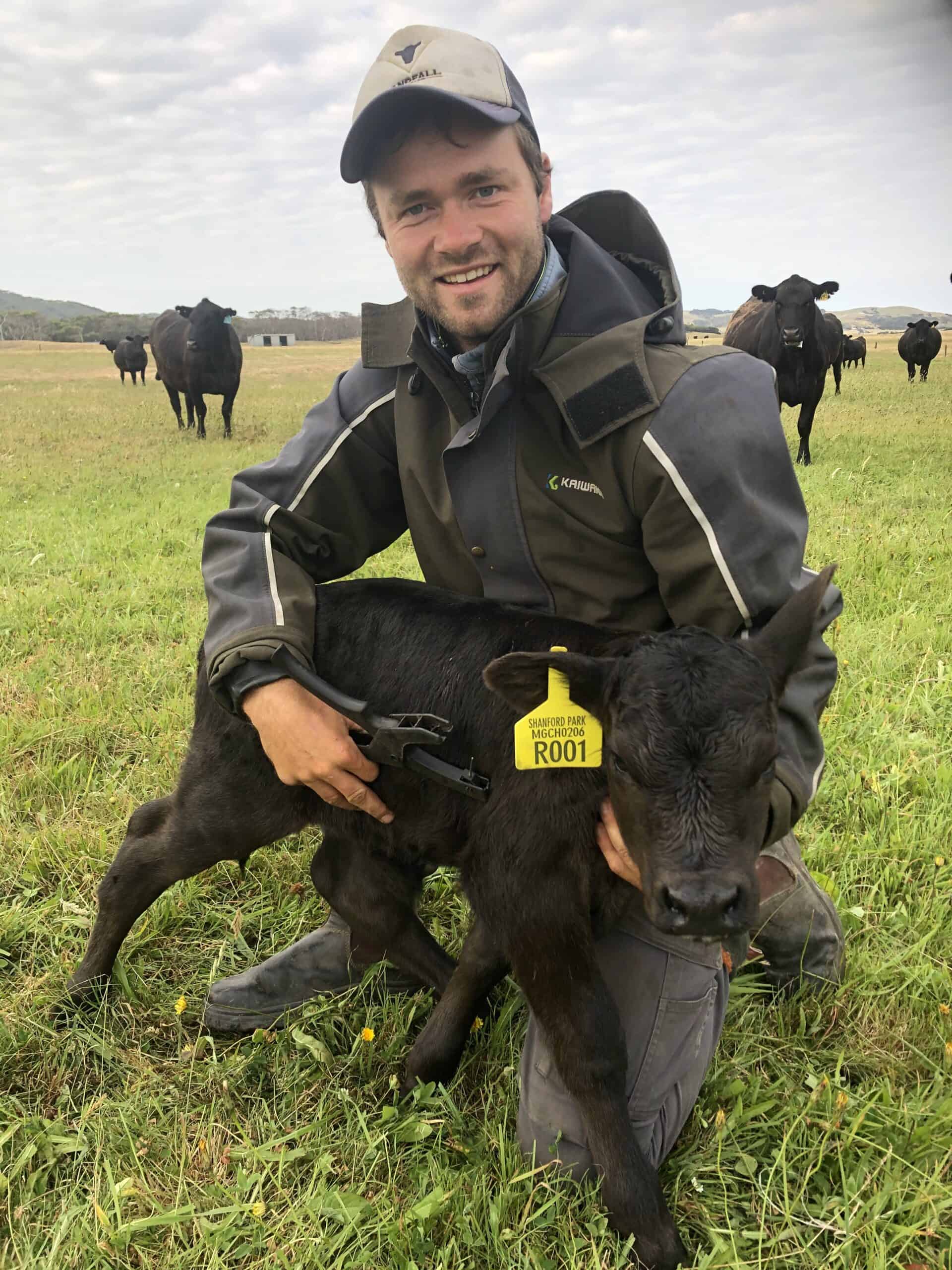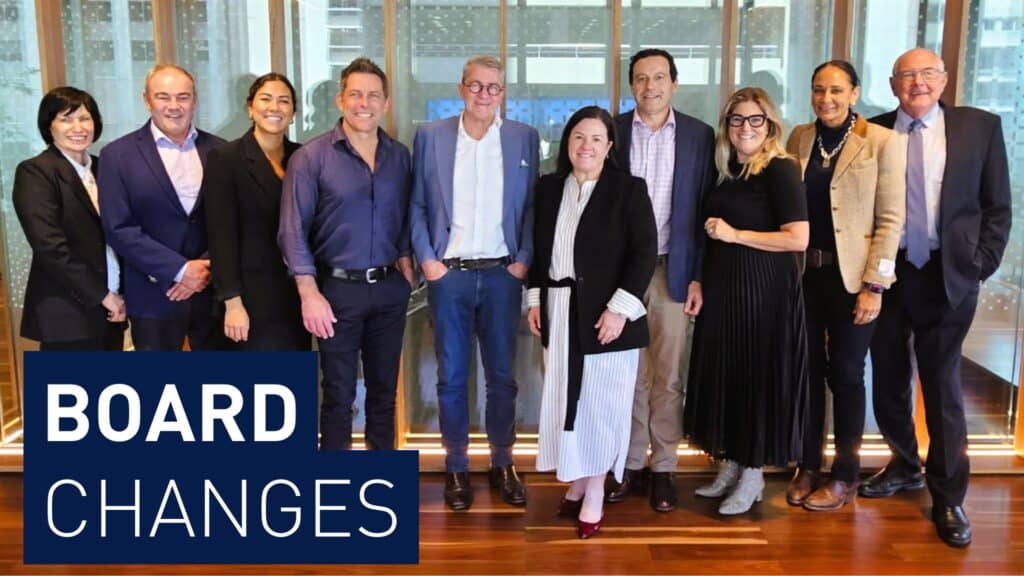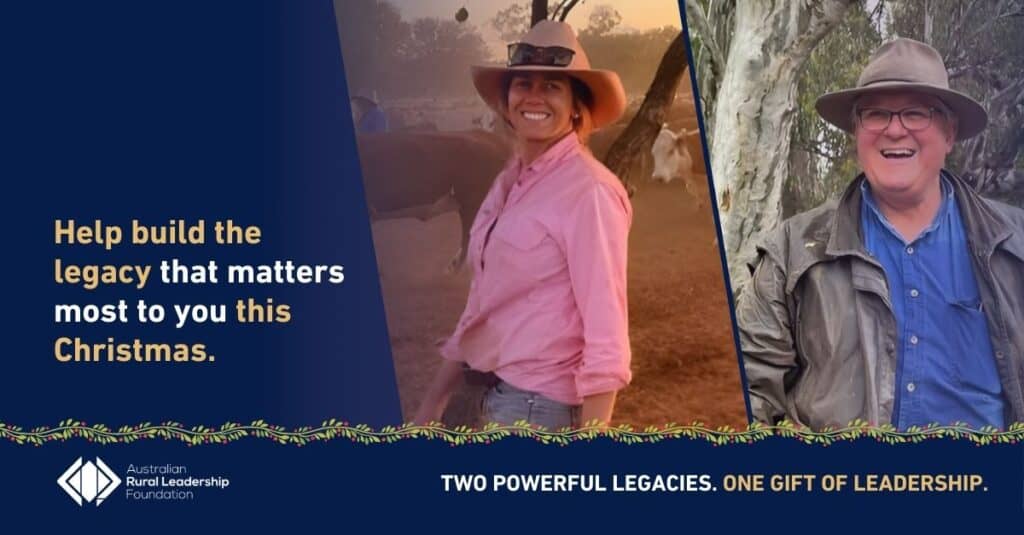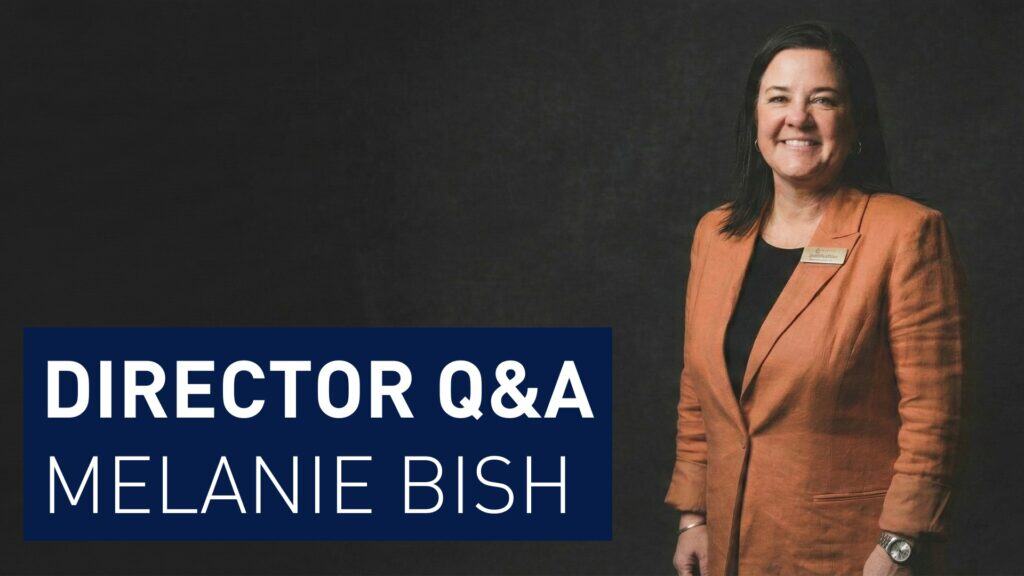Stafford Ives-Heres farms in the North-West of Tasmania, in a ruggedly scenic area fringed by the deep blue, cool clear waters of the Bass Strait.
Surrounded by inspiring natural landscapes, he lives within a community of people he describes as “wonderful.”
It was his commitment to community, and to his vision, which saw Stafford drawn to the Leading Australian Resilient Communities program, an initiative that promised to help him further develop existing leadership skills, while enabling him to work on a successional planning project that would contribute to his region’s resilience.
His home is bounded by Marrawah, Arthur River, Woolnorth and close to the Cape Grim CSIRO Atmospheric Research Centre which has declared the region has the “cleanest air in the world.”
The area is economically supported by primary production: forestry, farming, fishing and mining, a variety of sectors that mean it is not reliant on one industry alone. However, Stafford is concerned about it being known only for its primary production—and nothing else.
He has a vision for his community, and that is to attract, retain and grow the region through its people, diversity in agriculture and effective succession planning.
His community has faced challenges in the past, including tough times that followed the decision by milk processing cooperative Murray Goulburn to force farmers to pay back milk revenue.
“Farmers suffered, and in turn the whole community did; the local shops, sporting clubs, and non-for-profits were all struggling,” Stafford said.
People who had planned to farm forever lost their futures. It took impacted communities years to recover from this blow and provided an insight into the importance of economic diversity and succession planning.
Diversity is key on his family’s farm, where Stafford has established a vineyard to complement the existing beef cattle and kelp enterprises. The presence of the vineyard adds to the farm’s resilience.
Just as diversity is of value to individual farms, buffering their fortunes during the ups and downs of primary production, Stafford sees it is of value to communities where varied enterprises provide insulation against economic challenges.
Already dealing with issues related to its aging population, the region is grappling with the impact of agriculture’s corporatisation.
Stafford sees both issues as being related to succession; the process of transferring communities and business from one generation to another and planning to keep individuals and communities healthy and resilient.
During the LARC program Stafford was part of a group that worked on successional planning in agriculture, the Agri-Advance project.
“This project aims to create conversations around land ownership so that community equity isn’t at risk in the medium to long-term,” Stafford said.
A planned project outcome is a forum which will focus on diversifying land use and improved succession planning for the region’s agriculture sector, which is changing with the expansion of corporate farming.
Stafford said that corporate agriculture tended to have a negative impact on communities when it arrived, with the liquidation of assets including financial and human capital in the community.
“One of our biggest challenges is that with population growth, there is pressure put on provision of services. At the same time, the expansion of corporate agriculture in the region means there are fewer people employed, so less money going into the community,” he said.
Stafford said he felt that family businesses had the scope and the need to create opportunities to diversify, attract and retain young people. He saw a place for smaller farms which would allow for horticulture and niche farming, bringing more people into communities.
Such changes may alter the region’s character but would retain people keen to be on the land, as would more effective succession planning which enabled families to remain on farms, and for young people to enter farming in their own right.
“The Tasmanian State Government has policies that enable people to get into agriculture at a lower equity level, but if we could activate that space organically, that would be a good thing,” Stafford said.
He said that getting into farming could be challenging for young people because of high land values, creating the need for formal and documented succession plans in family business.
Share farming is also another option Stafford said would be crucial to help young people into the sector, with the benefits of giving them access to both farmland and the wisdom of the older generation.
Involvement in the LARC program gave Stafford the chance to think deeply about the issues that concerned him and focus on solutions to the succession problem. Access to leadership coaches and a cohort of people with different perspectives and areas of expertise enabled him to brainstorm ideas and actually work towards solving the problem.
The chance to take part in the LARC learning opportunity arose just as his term as an elected member on the Circular Head Council was ending.
“I was looking to still contribute to a team in a capacity across the North-West coast; I felt the LARC program was that calling,” Stafford said.
Collaboration with the LARC group on the succession project enabled him to work on his own leadership skills. One of the highlights was the interaction with others.
It was the “collective” nature of the program that provided Stafford with a most valued learning experience, the chance to meet people from all different walks of life,
“There were people from the private, public and community sectors. Some had overcome some real barriers in their lives to get this far,” he said.
He said it was a positive experience to be with 26 people who were “comfortable with not being comfortable” and said it was the ideal situation for people who liked to challenge themselves.
Stafford said that for him, the forging of new relationships during the program was one of the most tangible benefits.
“I love meeting like-minded people that are passionate about our region and its people,” Stafford said.
“The greatest thing with the program was that we were all from different cohorts of our community, making a true representation of North-West Tasmania,” he said.
With the LARC program behind him, Stafford said that he still had difficulty actually defining the term “resilience.” He said he thought one of his LARC cohorts “nailed” the definition when they spoke of the drive or desire of the community to recover and move forward following challenges, in a way that included those individuals who may be struggling.
With careful succession planning, businesses, individuals and community organisations could ensure their survival during challenging times, and allow them to contribute in the long term.
During the LARC program, Stafford tested his existing leadership skills and reassessed work he had done on a known flaw: his tendency to be over enthusiastic and dominate conversation. He was delighted by the feedback, as his group told him they did not observe that behaviour at all.
Involvement in the LARC program involved new learning, but it also served to reinforce positive leadership skills that participants gave to the experience.
“The program encouraged depth in discussion, rather than a focus on specific points, and it also encouraged use of skills and tools such as the use of empathy,” Dean said.
While his family’s intergenerational farming business will keep him grounded, Stafford will be playing an active role in his community sporting clubs and volunteer groups, but his long-term goal is to serve the region in State politics.
“The importance of community has been engrained in me by my family: we are community people,” he said.
“It is about being involved in bigger cause than self.”





